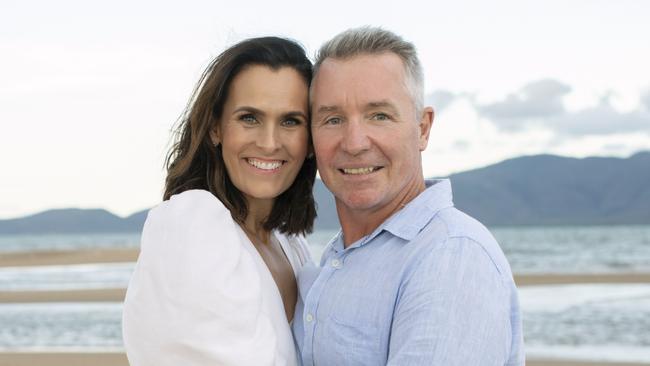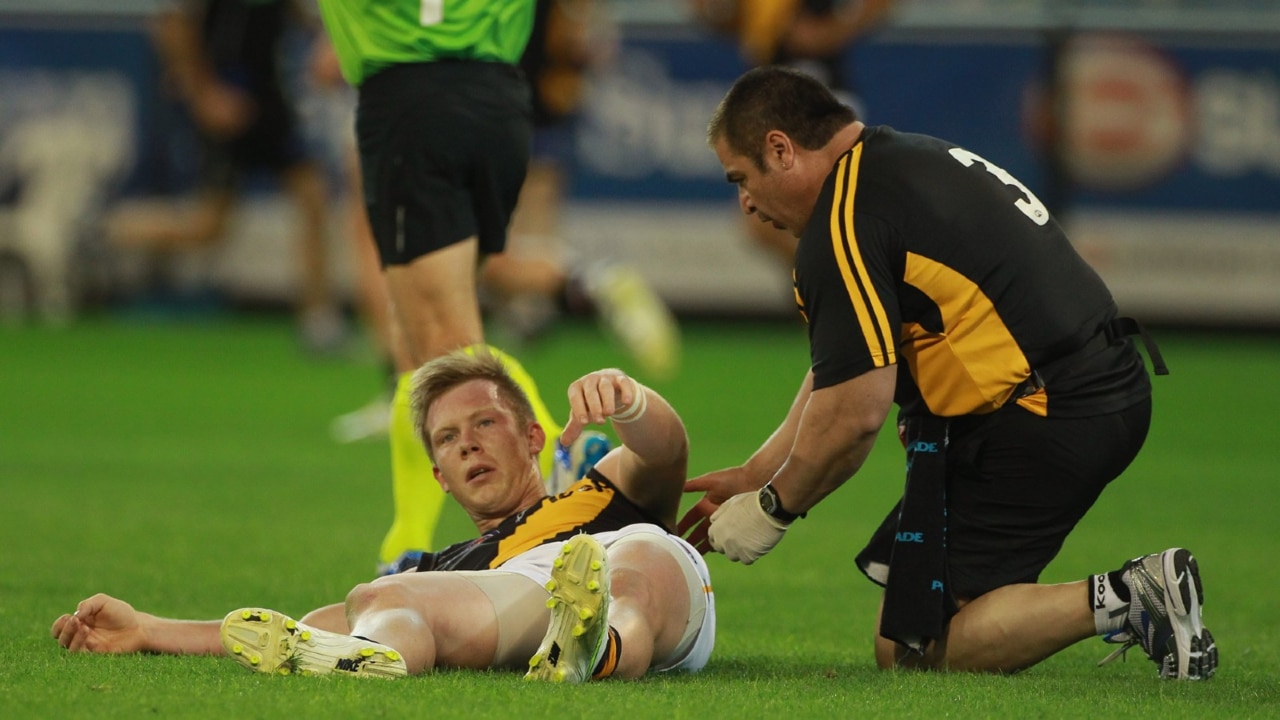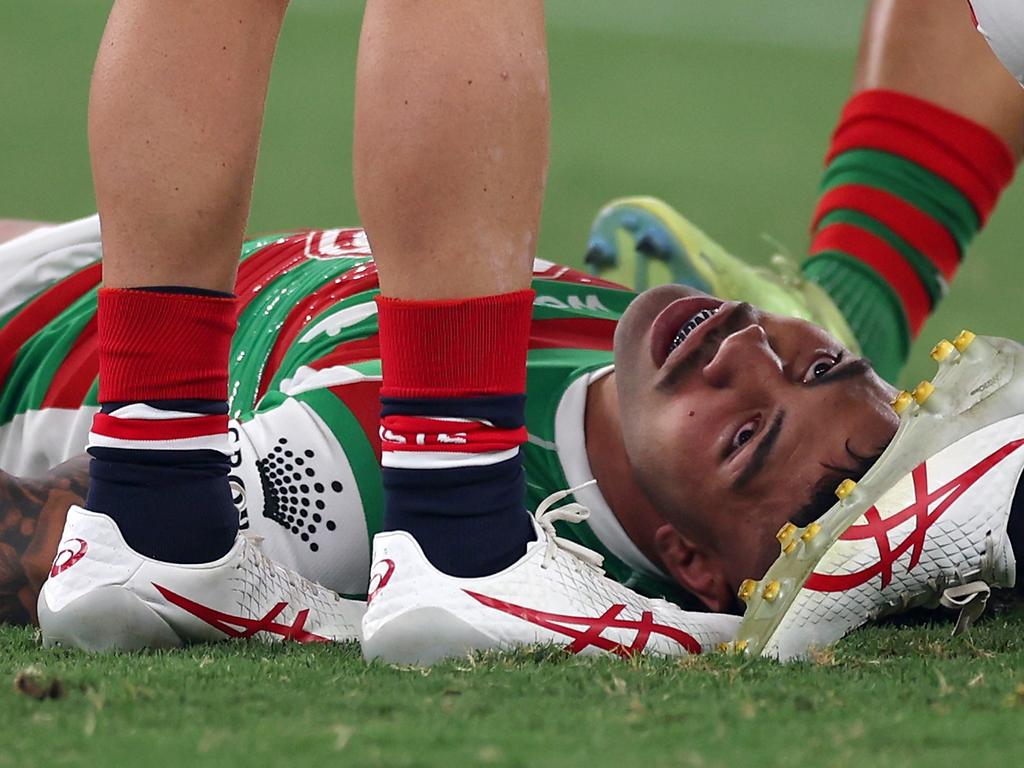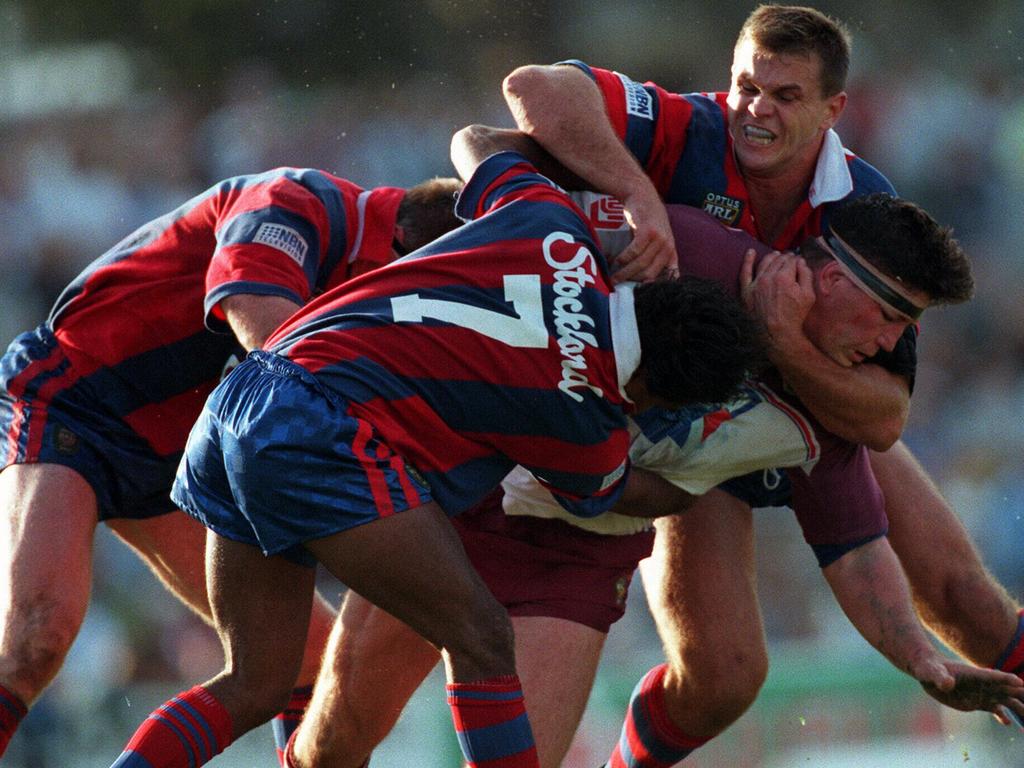NRL great Paul Green’s widow backs brain scheme
The wife of deceased rugby league star Paul Green, who was found to have a ‘severe’ form of CTE post-mortem, has called on NRL leaders to provide brain scans for former footballers.

Amanda Green, whose rugby league star husband Paul Green was silently suffering a “severe” form of CTE when he died, has joined a growing chorus calling on the NRL to fund brain scans for footballers.
Mrs Green, rugby league greats James Graham and Mark “Spudd” Carroll, and influential radio broadcaster Ray Hadley have backed calls for NRL bosses Peter V’landys and Andrew Abdo to establish provision for brain scans for former players.
Contacted by The Australian on Tuesday, Mrs Green, whose husband was unknowingly battling stage three CTE when he took his own life last year, believes scans for former footballers would be a “great initiative”.
“A day doesn’t go by where I don’t wish I knew back then what I now know about CTE,” Mrs Green told The Australian.
“Paul was such a highly intelligent and clever guy, it breaks my heart to think that he was silently dealing with changes in his brain that neither of us understood.
“We cannot change the past, but we can certainly change the future, and today’s NRL leaders must ensure that former players no longer suffer in silence.”
Mrs Green, whose husband was a Cronulla Sharks great and a North Queensland Cowboys premiership coach, donated his brain to the Australian Sports Brain Bank in August.
A post-mortem revealed Green suffered from one of the “most severe forms” of pure chronic traumatic encephalopathy neuropathologist Michael Buckland had seen. CTE is a brain disease that has been linked to repetitive head knocks.
Green, who played 162 games and won the Rothmans Medal, had a “high stage” grade of the disease, which also could be classified as stage three CTE. Professor Buckland said it can lead to impulsive behaviour and impaired judgment.

“My feeling is he would have been symptomatic for some time and he was a smart guy, a remarkable man, with a lot of diverse interests,” Professor Buckland said in October.
“I suspect he would have been coping with stuff he didn’t understand for quite a while. He didn’t have mental health problems; he just couldn’t control stuff that was going on in his head.”
Mrs Green has vowed to “shine a light” on her late husband’s diagnosis and raise awareness around the need for greater support for players and their families.
The Sharks and Cowboys will play the inaugural Paul Green Medal match this season. The match between the teams will be an annual reminder of Green’s impact on rugby league and a reminder to all about the devastating impact of CTE.
The Sharks will host the Cowboys at PointsBet Stadium in round nine on April 27, with the man of the match to be awarded the Paul Green Medal, and the medal will also be awarded when the Cowboys host the Sharks in Townsville on August 17.
Mrs Green’s support for the idea of brain scans for former players follows rugby league hard man Carroll’s revelation he has received a probable CTE diagnosis.
Carroll, who sustained more than 50 concussions in his first grade career, told his story to The Weekend Australian because he says the “silent suffering has to stop” and brain scans should be provided by the NRL to all former players.
“I do believe there should be more care for ex-footballers of all eras,” Carroll said. “I think the NRL – who made a $63m profit last year – should be providing MRI/PET scans.
“To the men who played in my era and the eras before – the men who were my heroes and I wanted to be like: please get a brain scan.”
If you or someone you know is at risk of suicide, call Lifeline (13 11 14) or the Suicide Call Back Service (1300 659 467), or see a doctor. Macquarie University’s Concussion Connect email: neurology@mqhealth.org.au








To join the conversation, please log in. Don't have an account? Register
Join the conversation, you are commenting as Logout